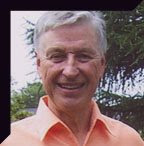Philosophy—what about it?
It can make you pull your hair out. Or tie your mind in knots. Or shed light on your path.
Some say philosophy is over. These are the post-modernists of our time. There is no truth, they say. We all just grab some ideas that we like or that comfort us until we croak and that’s about it. No truth can be found.
Some say philosophy can give insights into what is really going on in the world and help us to shape a flourishing life.
Key Question One: what is the basis for any conclusions we adopt? For many the basis is no more than this. “What makes me feel good today?” The truth doesn’t matter. To each his own. The only “sin”—being critical of someone else’s ideas.
For philosophers like me the basis is what stands up to tough questioning. Are my ideas about things logically defensible (coherent). Are they inclusive (comprehensive)? Are they workable (pragmatic)?
Key Question Two: is there a reality beyond my own imaginings that I should pay attention to? Or is the universe whatever I would like it to be?
Examples. “I truly believe I’m not high and can drive home.” Result: sincere, but dead on the road.
“I truly believe I can cheat on my spouse and not hurt anyone.” Result: devastation for myself and my kids.
“I sincerely believe that when I die there is nothing more to it.” Result: Hmmmm….
“I truly think that if I am a good person, I’ll be OK if there is a final exam after death.” Result: Hmmmm….
Dr. Gus’s viewpoint: I had better examine everything with rigor, because the world/ the universe/reality is what it is, and my thinking either helps me to get in line with forces bigger than myself or I could be crushed. I could be sincere but fatally wrong. That would not be good.
Key Question Three: what is the nature of what is? I am in a universe that blows my mind when I think about it. I am going to die, that’s for sure. What is the wisest plan I can come up with for my life?
I suppose I could ignore it all. “Who knows the answer?”
But maybe that’s too big a risk. I, for one, want to think about the meaning of my life as a whole; about the value of my life when all is said and done and the lid of the coffin closes over me. About the purpose that I choose for myself: why am I here and why am I doing what I am doing? At my age I could be playing golf in Arizona or fishing in Florida every day.
Let’s call these big questions the MVP. Meaning. Value. Purpose.
Some say there is no MVP that is based in what’s out there. The universe has no MVP. That means there is no MVP to be discovered. Make up your own MVP. If this is the truth, then philosophy comes to a stop sign—a Dead End. Do what you want and hope you luck out by not being born in Bangladesh or Baghdad and not getting Dengue Fever or lung cancer or taken out by a drunk or a terrorist.
Others say the ultimate reality out there is packed with MVP. We are not just going, we are all going Somewhere. The meaning of life is to do whatever it takes to get in line with a Grand Reality that promises a hope and future. Values either support this quest or de-rail it. There is a purpose for my existence, for our existence. So what we embrace has eternal implications.
This is the big debate in philosophy. Not every answer can be correct. Either the universe is much ado about nothing (in the end when the galaxies run out of gas) or it is pregnant with endless life and value for us.
What clues, what evidence can we find in what little we have to work with here on planet Earth?
Science cannot resolve this, because science rests on philosophical assumptions that may or may not be true. Sorry—but that’s the way it is.
The Bottom Line: we need to think long and carefully despite our busy and often frenetic lives. That is philosophy in terms of the quest for truth and quest for MVP.
Thursday, April 21, 2011
Subscribe to:
Post Comments (Atom)

No comments:
Post a Comment